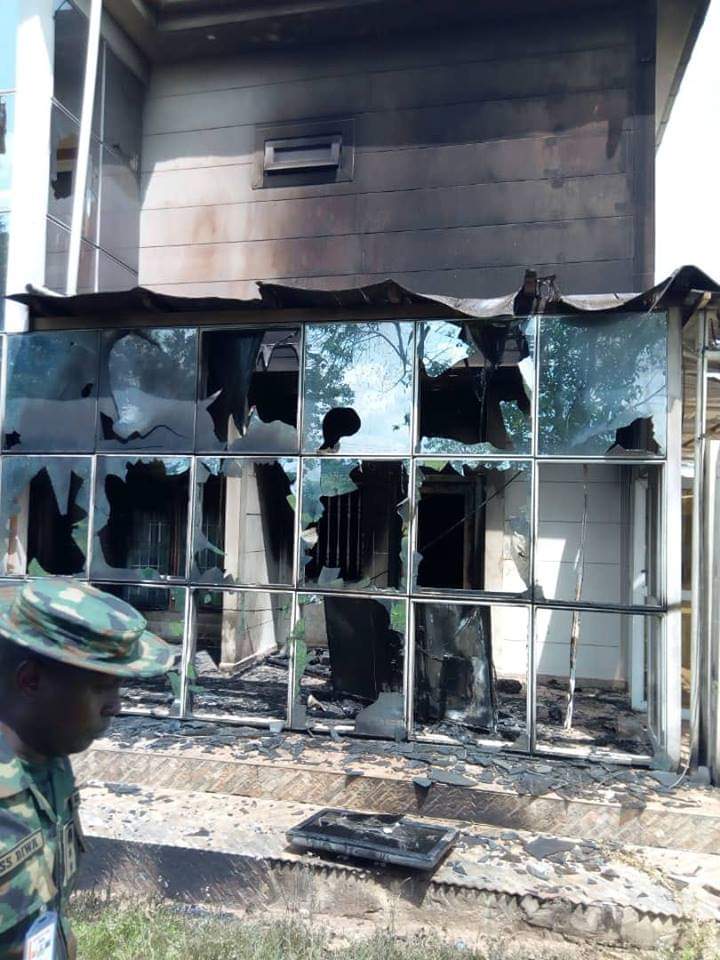By David Nsa
Following renewed hostilities between communities across several local government areas in Cross River State, some residents have called on the relevant government agencies to intervene and seek sustainable solutions to the problem.
The Obol Lopon of Ugep, Obol Ofem Ubana and the Chairman, preventive and early warning committee of Partners for Peace, Alhaji Shaaban Abdulahi say when available options fail, the onus lies on the government which has all conflict resolution instruments at its disposal to settle the conflicts.
The duo made the call on Sunday while speaking as guests on weekly radio program, The Dialogue With Agba Jalingo on Hit FM.
The Ebom, Ebijakara, Ediba and Usumutong in Abi local government area conflict reared its head again last week while there are reports of casualties following renewed hostilities between Mbiabo, Ediong, Obomitiat Edere and Idim Ndom Eki in Odukpani local government area.
And Obol Ubana said that: “For interstate communal wars, we expect the boundary commission to come to the aid of such communities. The duty of the National Boundary Commission is to ensure that they demarcate clearly, the boundary between two States.
“In the boundary between two local governments, it is the duty of the boundary commission. That is they are supposed to go and demarcate such places; show clearly the boundary between the two local governments.”
The monarch who said the boundary demarcation between Yakurr, Abi and Obubra which used to be one local government area remains under contention, called on government at all levels to be proactive to prevent the loss of lives and properties.
“It is the duty of the boundary commission to demarcate clearly, the boundary between two communities. So, I think that it is the duty of government; the government should summon the willpower to be able to say yes, let’s take over this place and see how we can be able to properly demarcate clearly, the boundaries of the neighboring communities or local government,” Obol Ubana said.
On the issue of Court judgments over boundary matters, he said that: “The Court is supposed to enforce the judgment but for in land cases, it is often difficult for the Court to enforce such judgments. It is the people of the two communities that will come together to say we have had enough, let us resolve by ourselves where the boundary line is supposed to be.”
He cited the failure of the Nko and Mkpani communities to settle boundary issues in the 50’s and 60’s as an example of the limitations of the Courts in boundary matters.
Also, he disclosed that the Ediba and Usumutong crisis has been ongoing since 1936 and called on the Abi communities to respect their leaders and meet to chart a way forward for peace to reign.
For Alhaji Shaaban, the role of nongovernmental organisations was limited due to funding and accused governments of negligence.
He identified pride as one of the reasons why Court judgments and mediation may not work and called on State actors to wade in.
Shaaban who said he had worked on conflict resolutions in Abi communities, averred that: “You know as an NGO we are tied down to limited resources,we cannot be every were at the same time.
“The government has a greater role to play. The government should make sure that all the perpetrators are made to face the law, because a lot of things are being shoved under the carpet.”
On the failure of Court rulings to be enforced, he averred that: “The problem is not only on demarcation alone but also of pride.”
Meanwhile, CrossRiverWatch gathered that a public primary school, a community health center in Obomitiat Edere among other properties were torched while a peace meeting by relevant stakeholders has resolved to recommend the withdrawal of the certificate of office for traditional rulers in warring communities.
Reports reaching CrossRiverWatch also indicates that the traditional rulers council led by the Paramount Ruler of Odukpani, Etinyin Otu Mesembe VI; the Head of Local Government Administration, Mrs Ekeng Ebri as well as representatives of security agencies were all part of the meeting which sent a warning to the warring communities to lay down their arms.
Since You Are Here, Support Good JournalismCrossRiverWatch was founded on the ideals of deploying tech tools to report in an ethical manner, news, views and analysis with a narrative that ensures transparency in governance, a good society and an accountable democracy. Everyone appreciates good journalism but it costs a lot of money. Nonetheless, it cannot be sacrificed on the altar of news commercialization. Consider making a modest contribution to support CrossRiverWatch's journalism of credibility and integrity in order to ensure that all have continuous free access to our noble endeavor. CLICK HERE |
New Feature: Don't miss any of our news again.Get all our articles in your facebook chat box.Click the Facebook Messenger Icon below to subscribe now
Text Advert by CRWatch :Place Yours
Will You To Learn How To Make Millions Of Naira Making Special Creams From Your Kitchen?.Click Here
Expose Your Business And Make More Sales. Advertise On CrossRiverWatch.com Today

